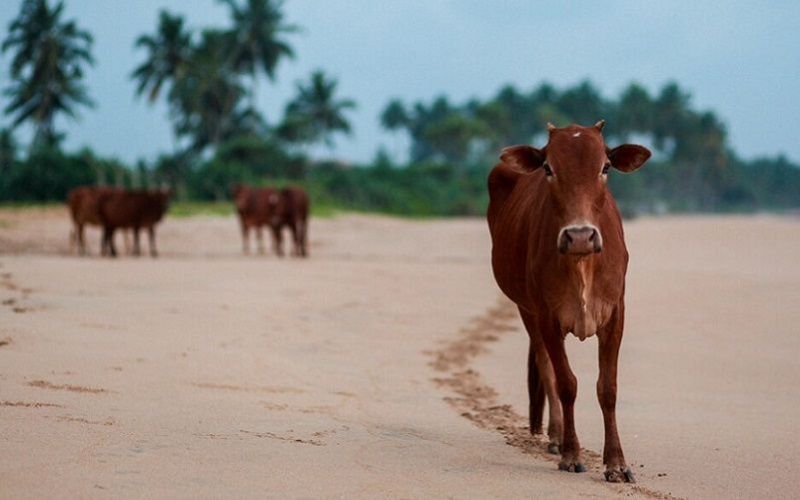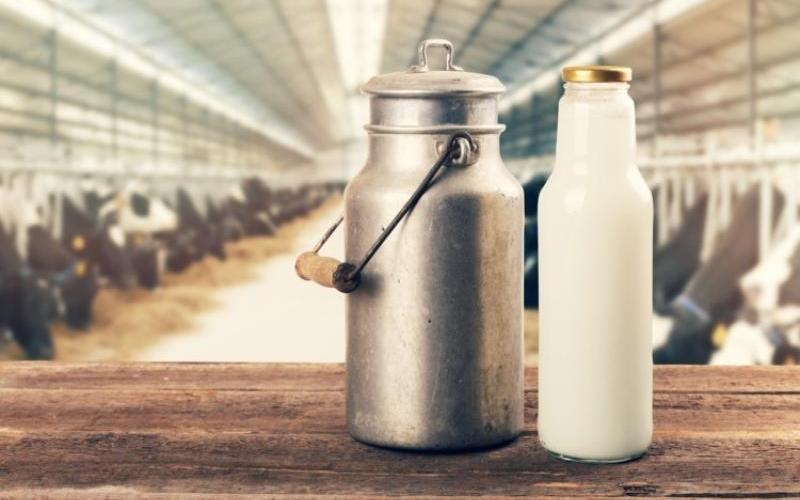India’s Dairy Farmers Earn 11,000 Carbon Credits from Biogas Projects
Source: DairyNews.today
India’s dairy sector has seen significant progress in sustainable energy practices, with more than 27,000 household biogas plants installed across 19 states. These plants, established under various schemes, have contributed to both reducing environmental impact and boosting farmers’ incomes.

As part of the government’s efforts to promote a circular economy, the initiative has generated 11,000 carbon credits from 1,040 dairy farmers. This achievement was highlighted in a presentation by the National Dairy Development Board (NDDB) at a recent review meeting chaired by Alka Upadhyaya, Secretary of the Department of Animal Husbandry & Dairying (DAHD).
The NDDB presentation showcased three models of biogas generation: the Zakariyapura Model (household-level biogas manure chain), the Banaskantha Model (large capacity dung-based biogas plants for Bio-CBG and organic fertilizer production), and the Varanasi Model (large-scale dung-based biogas plants to meet the energy needs of dairy plants). These biogas systems are promoting sustainable fuel production and organic fertilizer creation, crucial elements of the circular economy.
The impact is tangible, with two large dung-based CNG/biogas plants already operational, processing 140 metric tons of dung per day. Additionally, 11 more plants, with a combined capacity of 675 metric tons per day, are in development.
Further bolstering this initiative, the NDDB has signed a memorandum of understanding (MOU) with Suzuki R&D Centre India Pvt Ltd to explore innovative business models using cow dung as both a fuel source for transportation and an organic fertilizer, advancing carbon neutrality goals.
Upadhyaya urged dairy federations to actively participate in the circular economy initiative and collaborate with the NDDB on biogas projects, especially as the Department plans a national conference on circularity in the dairy sector. She emphasized that each state should present at least one biogas project to help reduce the dairy sector’s carbon footprint while boosting farmers' income.
The meeting also addressed water use within the dairy value chain, with discussions on improving water efficiency at processing plants. Automation integration was suggested as a key strategy to reduce water consumption, aligning with the National Water Mission and the National Action Plan on Climate Change.
In closing, Upadhyaya stressed the importance of benchmarking in the dairy industry to enhance efficiency, reduce production costs, and lower the sector’s carbon footprint. Additionally, dairy federations were encouraged to expedite the formation of cooperative societies to improve milk procurement and bring more dairy producers into the organized sector, further strengthening the socio-economic status of India’s milk farmers.
The NDDB presentation showcased three models of biogas generation: the Zakariyapura Model (household-level biogas manure chain), the Banaskantha Model (large capacity dung-based biogas plants for Bio-CBG and organic fertilizer production), and the Varanasi Model (large-scale dung-based biogas plants to meet the energy needs of dairy plants). These biogas systems are promoting sustainable fuel production and organic fertilizer creation, crucial elements of the circular economy.
The impact is tangible, with two large dung-based CNG/biogas plants already operational, processing 140 metric tons of dung per day. Additionally, 11 more plants, with a combined capacity of 675 metric tons per day, are in development.
Further bolstering this initiative, the NDDB has signed a memorandum of understanding (MOU) with Suzuki R&D Centre India Pvt Ltd to explore innovative business models using cow dung as both a fuel source for transportation and an organic fertilizer, advancing carbon neutrality goals.
Upadhyaya urged dairy federations to actively participate in the circular economy initiative and collaborate with the NDDB on biogas projects, especially as the Department plans a national conference on circularity in the dairy sector. She emphasized that each state should present at least one biogas project to help reduce the dairy sector’s carbon footprint while boosting farmers' income.
The meeting also addressed water use within the dairy value chain, with discussions on improving water efficiency at processing plants. Automation integration was suggested as a key strategy to reduce water consumption, aligning with the National Water Mission and the National Action Plan on Climate Change.
In closing, Upadhyaya stressed the importance of benchmarking in the dairy industry to enhance efficiency, reduce production costs, and lower the sector’s carbon footprint. Additionally, dairy federations were encouraged to expedite the formation of cooperative societies to improve milk procurement and bring more dairy producers into the organized sector, further strengthening the socio-economic status of India’s milk farmers.
Key News of the Week










